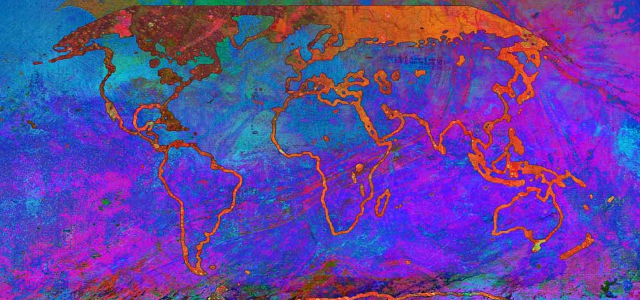The landmark report released by the Intergovernmental Panel on Climate Change (IPCC) this week has confirmed what people around the world are experiencing with devastating consequences – climate change is intensifying the water cycle.
Climate change is affecting rainfall patterns. The report finds that these disruptions will result in intense rainfall and associated flooding, as well as more intense drought in many regions. In high latitudes, precipitation is likely to increase, while it is projected to decrease over large parts of the subtropics.
What this means is that peoples’ livelihoods are under threat. Particularly the poorest and most vulnerable of societies who rely on rain-fed agriculture and who live in countries that have limited resources for adaptive activities.
Many of these countries are located in Africa, where the IPCC has found that the rate of surface temperature increase has generally been faster than the global average, and the frequency and intensity of heavy precipitation events are projected to increase in almost all sub-regions.
It is of utmost critical urgency that water security and climate resilience are incorporated as key factors in regional and national development plans on the continent. Currently, the delivery of water infrastructure across Africa remains below targets required to meet the water needs of the continent.
‘We urgently need accelerated investments in climate resilient, gender-sensitive, water security management and infrastructure. Specifically, coordinated investments in water-health-energy-food-ecosystems need to be part of national efforts on SDGs and Covid-19 recovery plans,’ said Mr. Alex Simalabwi, GWP Global Head for Climate Resilience.
US$ 64 billion is required annually to meet the 2025 Africa water vision of water security for all, yet only US$ 10-$19 billion/year is invested in water infrastructure.
“Global Water Partnership Africa Coordination Unit (GWPSA-ACU) is working in a partnership to support the implementation of the Continental Africa Water Investment Programme (AIP) which is addressing this investment gap by working to transform the investment outlook for water security on the continent,” said Mr. Simalabwi.
The partnership includes African Union Development Agency, African Ministers’ Council on Water, African Development Bank, UNDP, and UNICEF.
“The AIP is employing innovative approaches, such as a Water Investment Scorecard, currently under development, to track progress and mobilise high-level political support.”
The AIP was adopted by African Union Heads of State in February, as part of the Programme for Infrastructure Development in Africa – Priority Action Plan for 2021 – 2030.
In contributing to building resilience and adaptation in Africa, GWPSA-ACU is guided by the global GWP Strategy which includes climate-resilient development as a key goal, stressing the need for national adaptation planning, access to climate finance, integrated resilience planning, and water resources management.
The IPCC Climate Change 2021 report presents the key findings of the physical science basis of climate change, as part of the Working Group I contribution to the IPCC’s Sixth Assessment Report, also known as AR6. Below are some of the main outtakes.
1. Global warming is taking place faster
According to the IPCC, unless there are immediate, rapid, and large-scale reductions in greenhouse gas emissions, limiting warming to close to 1.5°C or even 2°C will be beyond reach.
The report finds that emissions of greenhouse gases from human activities are responsible for approximately 1.1°C of warming since 1850-1900, and finds that averaged over the next 20 years, global temperature is expected to reach or exceed 1.5°C of warming. IPCC says that this assessment is based on improved observational datasets to assess historical warming, as well progress in scientific understanding of the response of the climate system to human-caused greenhouse gas emissions.
2. There is better understanding of regional variation in climate change
For the first time, the Sixth Assessment Report provides a more detailed regional assessment of climate change, including a focus on useful information that can inform risk assessment, adaptation, and other decision-making. IPCC says that there is also a new framework that helps translate physical changes in the climate – heat, cold, rain, drought, snow, wind, coastal flooding, and more – into what they mean for society and ecosystems.
3. The human influence on climate change is undisputed
The IPCC says that human actions still have the potential to determine the future course of climate. The evidence is clear that carbon dioxide is the main driver of climate change, even as other greenhouse gases and air pollutants also affect the climate. The report also reflects major advances in the science of attribution – understanding the role of climate change in intensifying specific weather and climate events such as extreme heat waves and heavy rainfall events.
The full report and all related documents may be downloaded here.
Read Global Water Partnership Organisation's response to the IPCC 2021 Climate Change Report here.
Photo: Changing by artist Alisa Singer from IPCC
